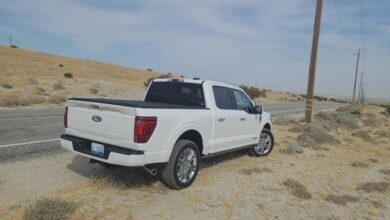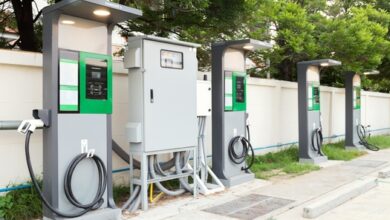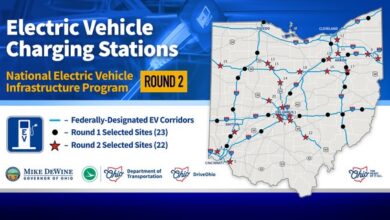Tesla expected to report sharp decline in car deliveries, sales

“It’s death by 1,000 cuts,” said Karl Brauer, an executive analyst with car research company, ISeeCars.com. Musk “has never had a demand problem … but over the past year-plus, there has been increasing indicators that he’s producing more cars than the market wants.”
Tesla’s first-quarter deliveries are estimated to have dropped to about 425,000 vehicles, from 484,000 in the previous quarter, according to Daniel Ives, a tech analyst with Wedbush Securities. Ives said it has been a “nightmare quarter” for Tesla, as the car marker grappled with a “perfect storm” of increased competition from China, waning demand in the overall EV market and a fire at its factory in Berlin that added more strains on production and deliveries.
“This will be not be a moment of celebration for the bulls and instead be a rip-the-Band-Aid quarter for Tesla investors,” Ives said. “For Musk, this is a fork-in-the-road time to get Tesla through this turbulent period, otherwise darker days could be ahead.”
Wider market forces are also at play for Tesla. While sales of electric vehicles are still growing faster than gasoline-car sales in the United States, interest has started to cool lately amid concerns about a lack of charging infrastructure, among other reasons. Other carmakers, such as Mercedes-Benz, have delayed electrification goals or reduced their short-term ambitions of electrification.
At the same time, though, Chinese electric-vehicle maker BYD overtook Tesla last year, selling more electric vehicles on a quarterly basis.
Tesla’s lower sales numbers add to the company’s troubles. It is also facing increased scrutiny from regulators over its driver-assistance software, Autopilot. Last year, the company agreed to recall 2 million vehicles — nearly every car it has produced — over concerns that the technology did not have enough guardrails to prevent driver misuse. The recall, which was conducted by a remote update, was the result of a sweeping investigation by the National Highway Traffic Safety Administration into the technology.
Days before the recall was announced, The Washington Post published an investigation identifying at least eight fatal or serious crashes involving Autopilot in locations where the software was not intended to be used.
The company is also facing lawsuits involving its Autopilot software, which question whether the driver is solely responsible when things go wrong in a vehicle guided by Autopilot, or if the software should also bear some of the blame. Tesla will face a jury later this month over a wrongful-death lawsuit involving a Tesla in Autopilot that veered into a median on U.S. Highway 101 in Northern California in 2018 while the driver allegedly wasn’t paying attention.
So far, the company has been successful in staving off liability: A jury found Tesla not liable last year in case involving Autopilot’s alleged role in a deadly crash in Riverside, Calif.
Gene Munster, managing partner of Deepwater Asset Management, said neither investors nor Musk appear to be swayed by Tesla’s legal challenges. Last month, Musk doubled down on his Full Self-Driving technology — Tesla’s premium driver assistance system — by requiring employees to install and show customers how to use the latest version before completing a sale.
“Going forward, it is mandatory in North America to install and activate FSD V12.3.1 and take customers on a short test ride before handing over the car,” Musk wrote in an email to his staff, first reported by Bloomberg. “Almost no one actually realizes how well (supervised) FSD actually works. I know this will slow down the delivery process, but it is nonetheless a hard requirement.”
Meanwhile, a survey by market intelligence firm Caliber, provided to Reuters, showed that a “consideration score” for Tesla fell to 31 percent in February, less than half its high of 70 percent in November 2021, when it started tracking consumer interest in the brand. The report partly cited Musk’s controversial reputation. Musk, one of the world’s richest men, has courted controversy in the past year as he has espoused hard-line immigration ideals, promoted antisemitic rhetoric, pushed conspiracy theories and criticized liberal causes as a “woke mind virus.”
His polarizing comments have driven away users and advertisers from the social media platform X, formerly Twitter, which he owns.
When it comes to Tesla’s struggling sales, Brauer said Tesla’s legal challenges and Musk’s polarizing personality aren’t leading factors behind the declines. But, he said, it “certainly isn’t helping.”
“Those factors are only leading to all the challenges,” he said.
Tesla did not respond to a request for comment.
Faiz Siddiqui contributed to this report.



